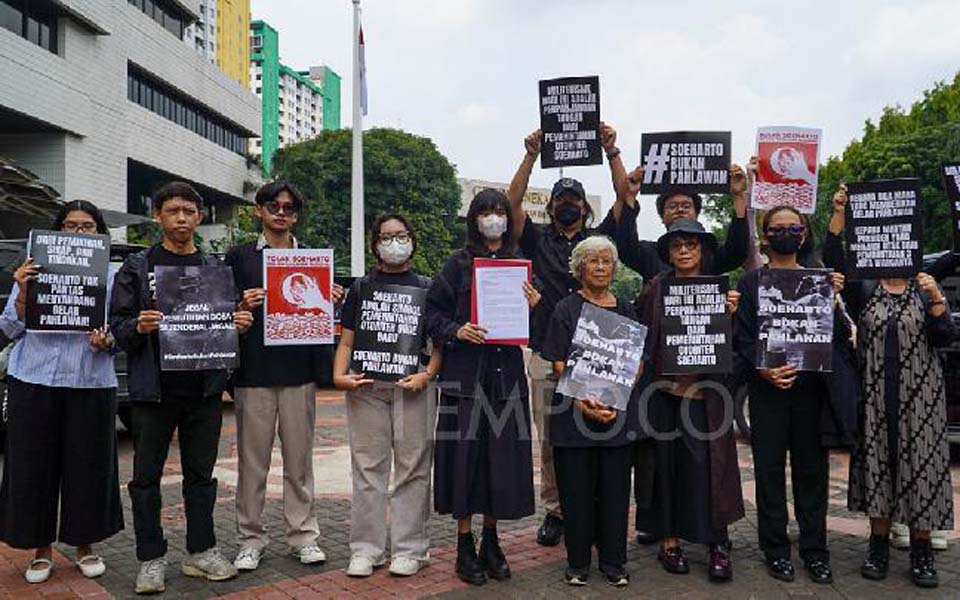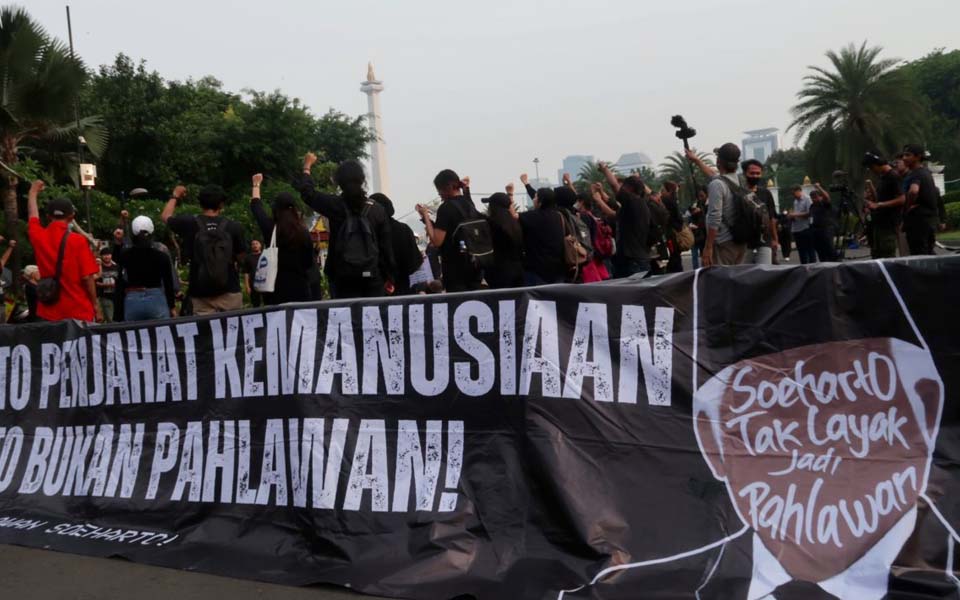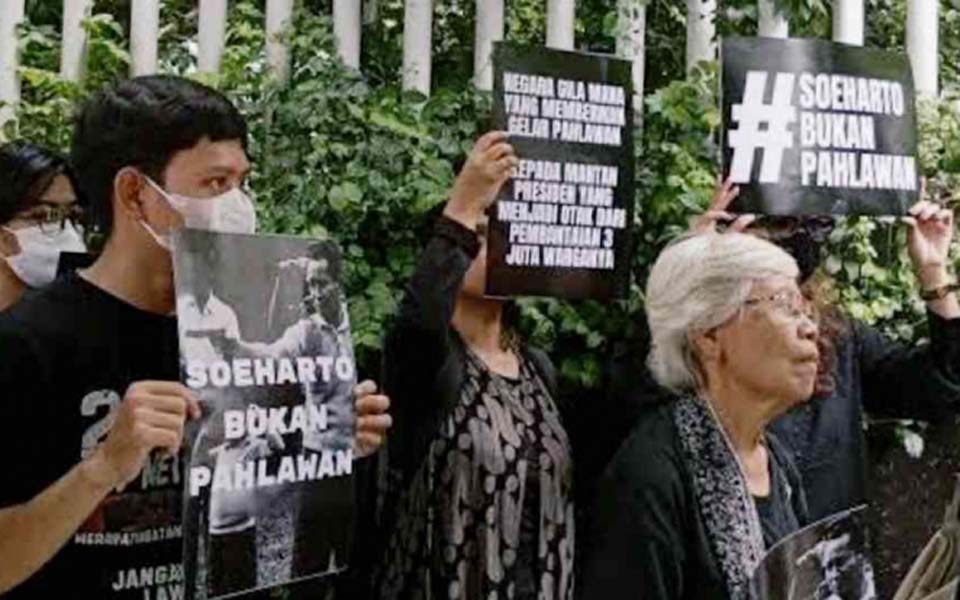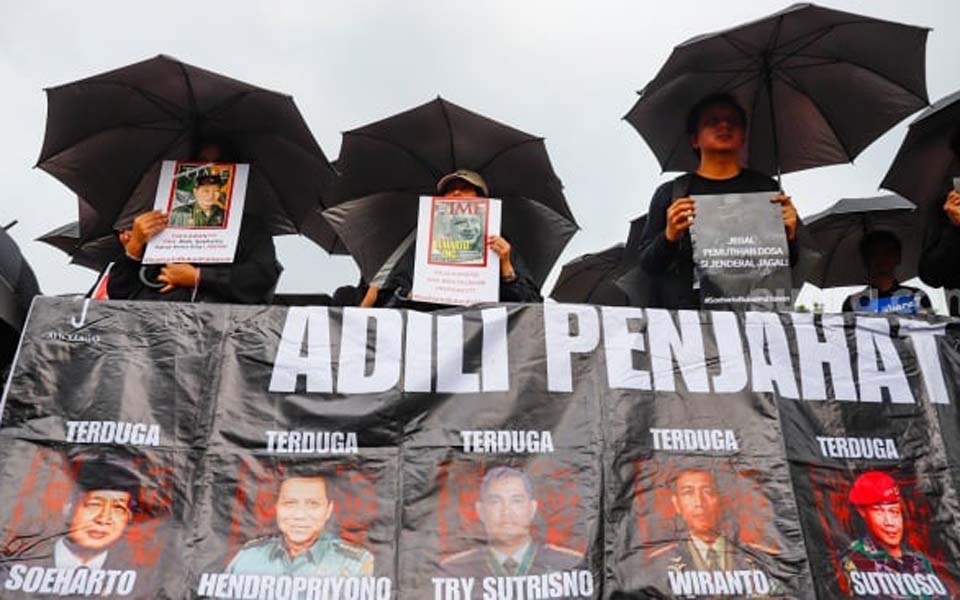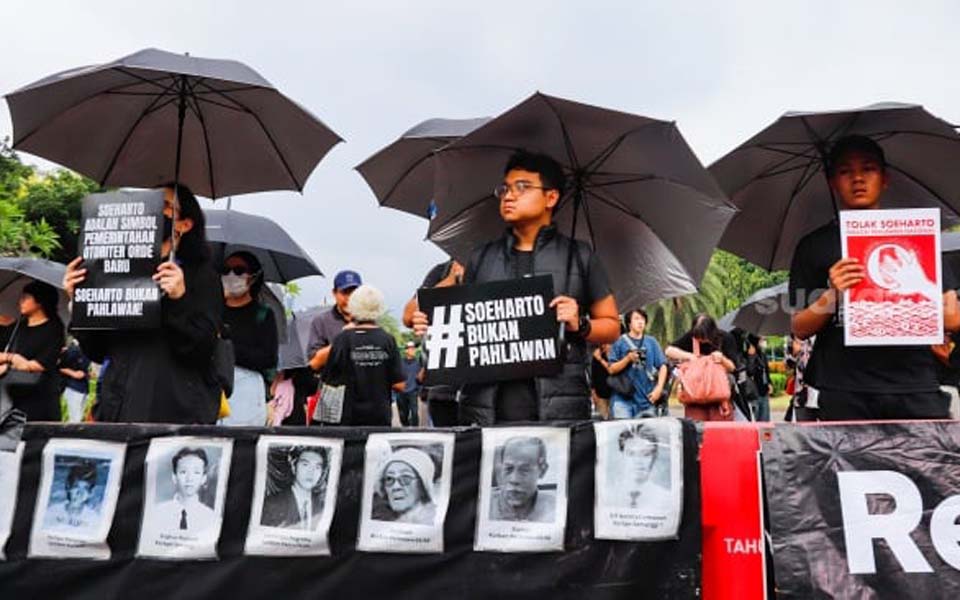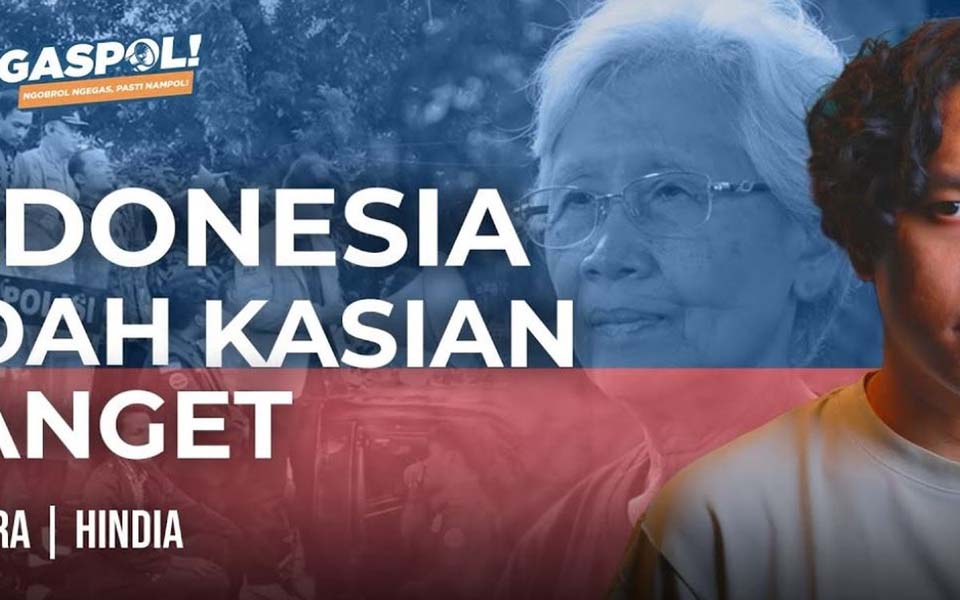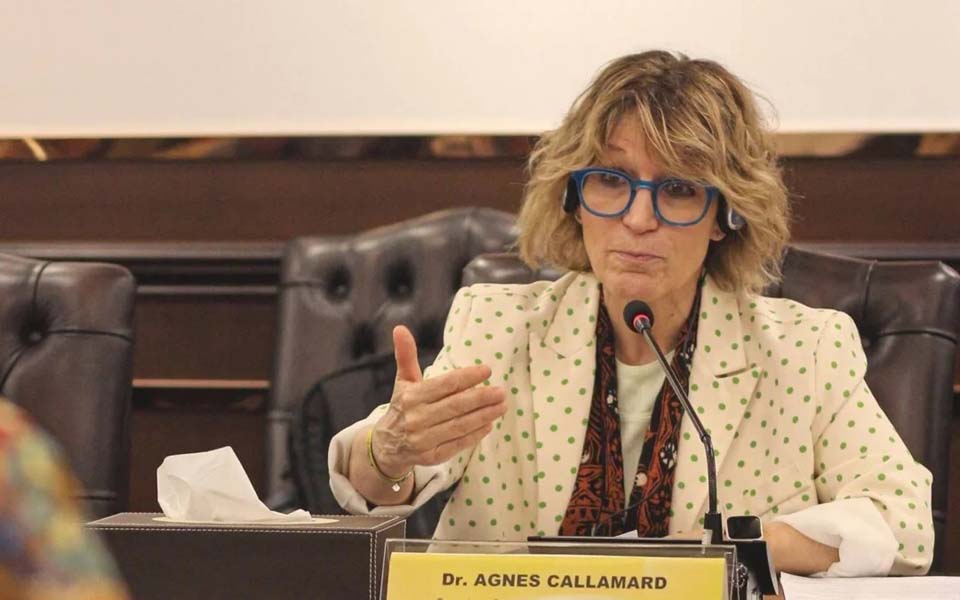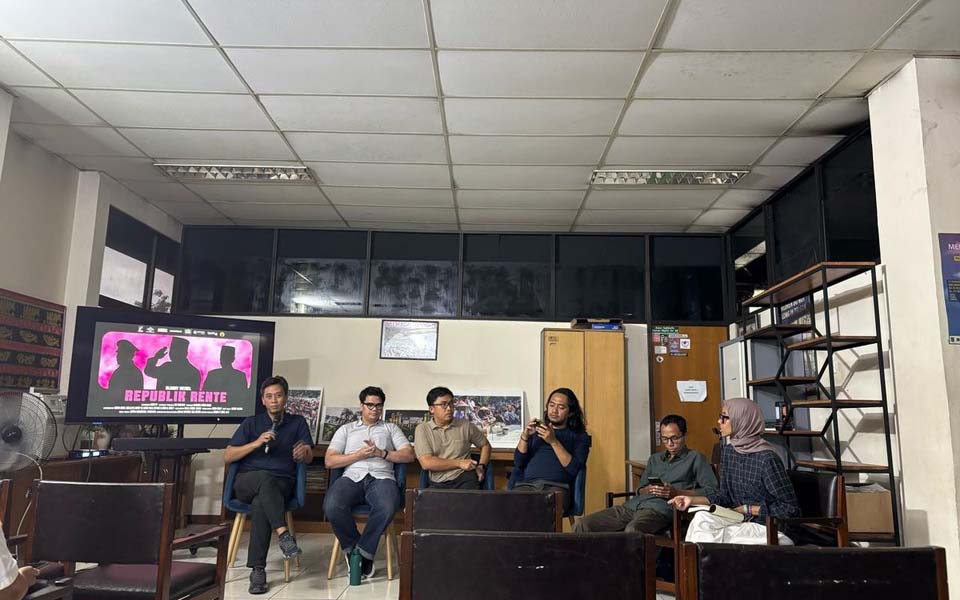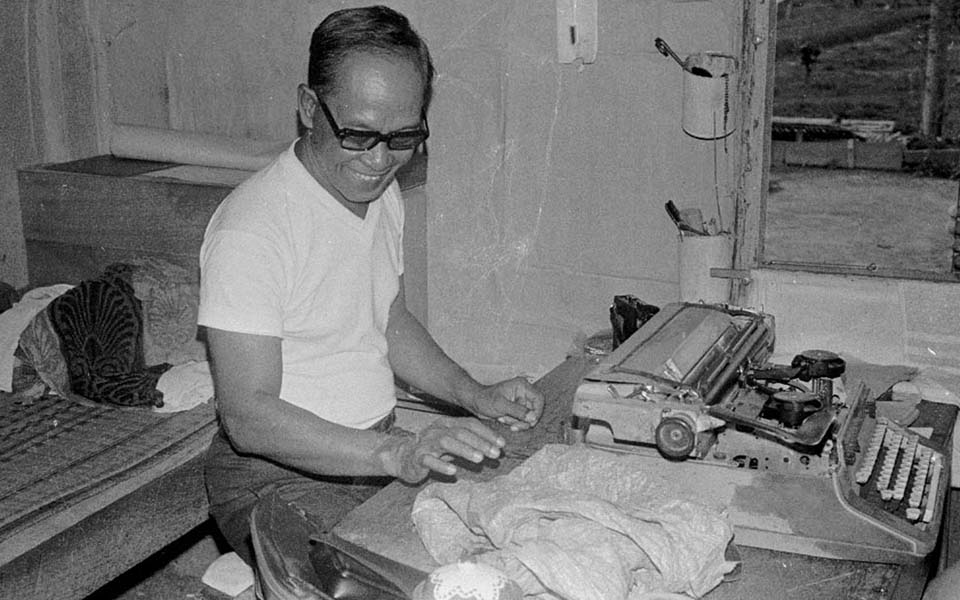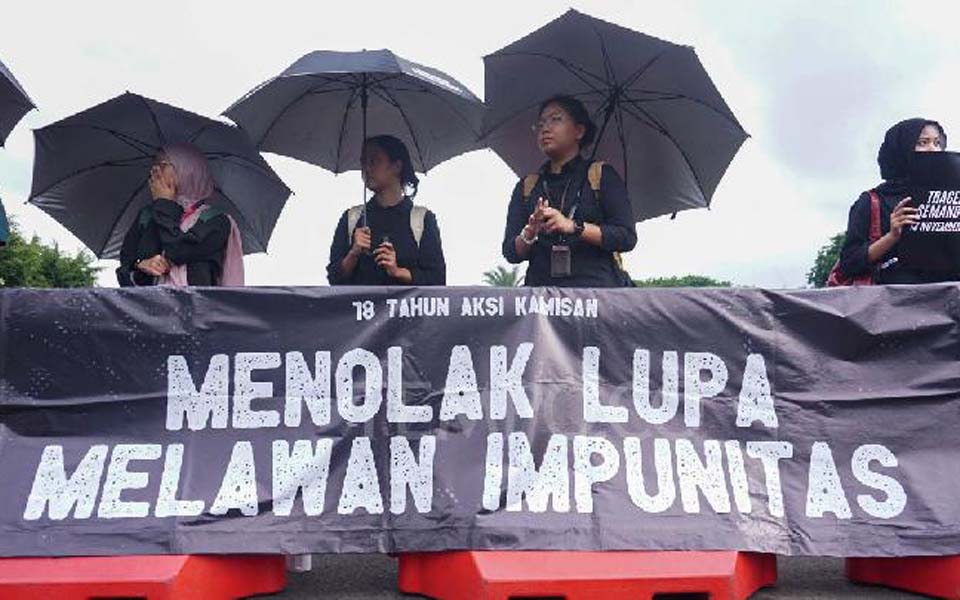The issue of granting the title of national hero to former president Suharto is no longer just an empty discourse – it is a reflection of how power continues to reproduce itself in order to whitewash the dark history of the nation.
Now, the consolidation of the political elites to support the title of hero for Suharto has become increasingly massive, especially after the Ministry of Social Affairs released a list of 10 candidates for the title of national hero in 2025 which included Suharto's name – a figure whose 32 years in power through the New Order regime were filled with human rights crimes, the abuse of power and systematic practices of corruption, collusion, and nepotism (KKN), which has still not provided justice for the victims to this day.
This political move towards the rehabilitation of Suharto's name was previously also seen from the controversial decision by the People's Consultative Assembly (MPR) on September 25, 2024, which revoked MPR Decree (TAP) Number XI/MPR/1998 – an important legal product that has been a moral reference for the nation in fighting the practices of corruption, collusion, and nepotism.
In fact, since reformasi – the political reform process that began in 1998 – the MPR no longer has legislative authority through the post reformasi amendments to the 1945 Constitution (UUD 1945). This move is strongly suspected to be part of a systematic strategy to clear Suharto's name and pave the way for the title of national hero.
The statement by Palace spokesperson and Minister of State Secretary Prasetyo Hadi, who said that giving the title of national hero to Suharto is a natural thing, added political legitimacy to this agenda. If we follow the common thread it is undeniable that Prabowo has a relationship with the Cendana family (Suharto's extended family) because he was once the son-in-law of the late Suharto. Moreover during his 2014 presidential election campaign, Prabowo made a promise to make Suharto a national hero as a form of respect to remember his services.
On the other hand, the Golkar Party, a political party inherited from the New Order that was once Suharto's political tool for maintaining power, has also continued to push this discourse since 2008 until now. Suharto's daughter Siti Hediati Hariyadi (Titiek Suharto) and Prabowo's former wife is also now a member of the House of Representatives (DPR), strengthening the political position of the Cendana dynasty.
Moreover, as reported by the media, when asked about Suharto's involvement in the mega corruption cases that cost the state trillions of rupiah, Hadi – representing the Red and White Cabinet – stated that "no human is perfect".
In fact the claim that Suharto is "Father of Development" is often used to cover up the fact that development during his era was used as camouflage for corrupt practices that benefited him and his cronies. He was even named a suspect in a case of the misuse of foundation funds in 2000, although the legal process was unilaterally terminated by the Attorney General's Office through the issuance of a Letter to Stop Prosecution (SKP3) on May 11, 2006, due to Suharto's poor health.
Despite this, the Civil Society Movement to Bring Suharto to Justice (GEMAS) filed a pre-trial lawsuit against the SKP3 at the South Jakarta District Court. The judge stated that the termination of the case was premature and the legal process against Suharto should continue. All of this reinforces the fact that during his 32-year reign, Suharto carried out corrupt practices. The 2007 Stolen Asset Recovery Initiative report from United Nations Office on Drugs and Crime (UNODC) and the World Bank also cite Suharto as the most corrupt leader of the 20th century.
In addition to this, the pretext that the award proposal process is carried out formally and based on academic studies, as conveyed by the Ministry of Social Affairs, is contrary to the reality on the ground. The procedure tends to be carried out in a closed, elitist manner, and with minimal public participation that is meaningful or broad.
Public voices of opposition such as from GEMAS, which have consistently called for accountability for Suharto-era human rights crimes and actively rejected the title of hero for Suharto since the start of reformasi, have been ignored. In fact, there has never been a public forum or transparent open discussion, even though Article 2 letter h of Law Number 20/2009 on Titles, Medals and Honours explains that the granting of titles and honours must be done transparently, openly and can be freely controlled by the broader public.
The Commission for Missing Persons and Victims of Violence (Kontras) has also highlighted that in recent years, the process of awarding titles, medals and honours by the state has increasingly shown political tendencies and has been carried out in a closed manner, without paying attention to the problematic track record of prospective recipients.
The awarding of the Bintang Jasa Utama (1st Class Star of Service) to former East Timorese pro-integration militia leader Eurico Guterres in 2021, as well as the honorary award of the special rank of four-star general to Prabowo Subianto in 2024, shows bad precedents in awarding state titles without any basis of accountability.
Even the Supreme Court judicial appeal ruling Number 638 K/TUN/KI/2024 dated October 15, 2024 emphasised that information related to the award given to Guterres was not confidential information and must be made public – a ruling that has still not been implemented Ministry of State Secretariat.
And it is not just about openness. In a lawsuit filed by Kontras against the granting of special ranks, practices were also found that were contrary to applicable laws – including both the Law on Titles, Medals and Honours and the Indonesian Military (TNI) Law – that there is no legal basis that regulates promotions and honorary ranks for retired TNI officers such as Prabowo, who was dismissed from active military service over the abduction of pro-democracy activists in 1998. Now, do not let this bad precedent be perpetuated by giving the title of national hero to "The Butcher General".
If the title of national hero is in fact given to Suharto, then it will be a form of symbolic legitimacy for the politics of power built on the suffering of the ordinary people. According to Law Number 20/2009 on Titles, Medals and Honours and its implementing regulations through Government Regulation (PP) Number 35/2010, the title not only gives the recipient the right to be buried in the Heroes' Cemetery, but also brings financial rights for their heirs, the funds for which come from the state budget – the people's tax money. This means that people's taxes – including those paid by the victims and families of victims of the New Order – will be used to honour a corruptor and human rights criminal while the families of the victims live without justice and legal certainty.
We emphasise that the state should not give symbolic, political and financial recognition to actors who have been proven to have abused power and violated human rights. Giving the title of national hero to Suharto is not only a form of distorting history, but also an insult to the struggle for reform, democratic values and the collective wounds of this nation. We cannot allow history to be twisted for the sake of elite political interests alone and always be permissive of human rights violations in Indonesia.
Jakarta, 24 April 2025
Kontras working body
Dimas Bagus Arya
Coordinator
082175794518
Commission for Missing Persons and Victims of Violence (Kontras)
[Translated by James Balowski. The original title of the article was "Rilis Media #TolakGelarPahlawanSuharto: Jangan Biarkan Politisasi Gelar Pahlawan Suharto Jadi Legitimasi Impunitas terhadap Dosa Orde Baru!".]





